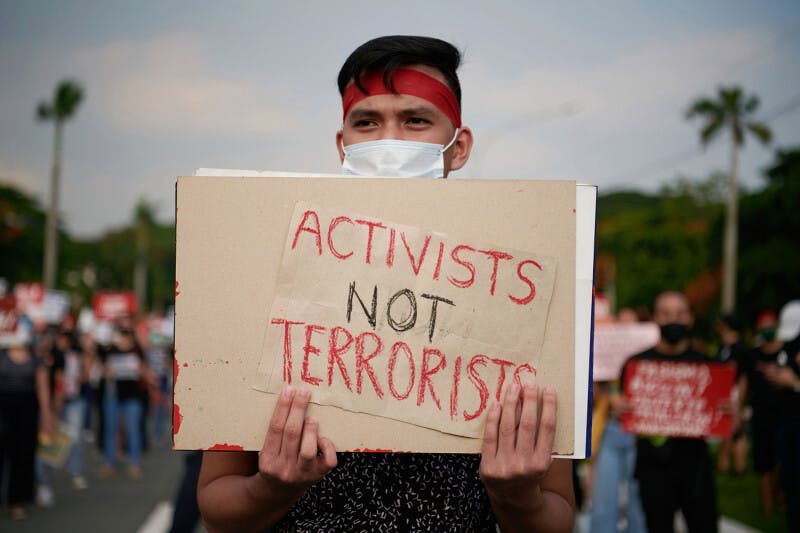Philippine anti-terror act may increase rights abuses

While much of the world remains preoccupied by COVID-19, the Duterte government in the Philippines has launched a raft of authoritarian measures. Draconian anti-terrorism legislation and attacks on media freedom have now emerged, along with continued widespread use of extrajudicial violence.
The Duterte government’s main response to the pandemic was highly militarised, with widespread use of roadblocks to enforce lockdowns, as opposed to mass testing and treatment. This month, the president signed the 2020 Anti-Terrorism Act, which provides a vague and overly broad definition of terrorism and permits warrantless arrests. It allows authorities to hold individuals in custody for up to 24 days without charge.
There is widespread opposition and several legal challenges to the new law, alleging that it breaches the Philippines constitution. Adopted in the aftermath of the Marcos dictatorship, the 1987 constitution established strong protections for civil and political rights.
There are very real fears the anti-terror law could lead to a further intensification of extrajudicial killings by security forces and vigilantes. The United Nations Human Rights Council issued a report on 5 June that found “widespread and systematic killings and arbitrary detention in the context of the war on drugs, killings and abuses targeting farmers and indigenous peoples, the silencing of independent media, critics and the opposition”.
An estimated 8,663 people (including 73 children) have been killed in “the war on drugs”. At least 208 human rights defenders, journalists and trade unionists have been killed since 2015.
The legislation also comes in the wake of increased attacks on media institutions. ABS-CBN media abruptly stopped broadcasting on 5 May after receiving a “desist order” from the country’s media regulator. One of two major broadcasting groups in the Philippines, ABS-CBN controls 42 television stations, 10 digital broadcast channels, 18 FM and five AM radio stations.
The network’s conflicts with government started some time ago. It allegedly refused to broadcast advertisements for Duterte’s campaign in the 2016 presidential election.
All television licences require government legislation, and ABS-CBN’s franchise expired at the end of March. Congress began the process of renewal only after the network apologised to Duterte in February. On 10 July, 70 of Duterte allies within the 85-person congressional investigation committee voted against granting another 25-year licence. Numerous hearings and testimony had established the channel had not violated legal provisions.
Controlled by the Lopez wing of the Philippine oligarchy and, like many mass commercial media networks, ABS-CBN is hardly a source of staunch criticism of Philippine politics and society. The dispute, however, highlights deep rifts and conflicts between more established sections of the oligarchy and Duterte’s government.
Duterte represents the more provincial components of the elite and maintains popularity through a populist law and order agenda.
Other attacks on press freedom include the conviction of Maria Ressa from the Rappler internet news service on 15 June for “cyberlibel”. Her arrest and conviction followed a complaint filed by Wilfredo Keng, a businessman connected to Duterte, over an article published in 2012.
Rappler has been a strong critic of the government’s human rights abuses, Duterte accusing it of being a “fake news outlet”. Rappler, however, represents a broader current of progressive investigative journalists that originated in the anti-dictatorship struggle of the 1970s and 1980s.
Duterte remains popular despite these abuses, maintaining a “tough on crime” image. Deep divisions exist within the capitalist and landlord elite over his rule. A small opposition movement continues to resist the increase in repression.